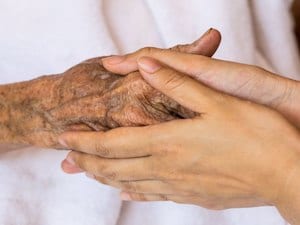
FRIDAY, Jan. 5, 2018 (HealthDay News) — When seriously ill hospital patients can’t express their wishes about their medical care, decision-making often falls to emotionally drained family members.
Anxiety and depression are common for these surrogate decision members, say researchers from the Indiana University Center for Aging Research and the Regenstrief Institute.
But they concluded that support from hospital staff can ease their distress and help them make better treatment decisions.
“As the population ages and more and more family members are thrust into the role of surrogate decision makers, appropriately supporting these family members will become a public health imperative,” said study corresponding author Dr. Alexia Torke. She’s associate director of the Center for Aging Research.
The researchers examined the experiences of 364 older patients and their medical surrogate at a total of three hospitals. Patients were an average age of 82. The surrogates’ average age was 58. Two-thirds of the surrogates were adult children. Seventeen percent of the surrogates were the patient’s spouse.
Up to 15 percent of the medical surrogates suffered from high levels of anxiety, depression or post-traumatic stress, the researchers found.
These effects were observed six to eight weeks after a patient was hospitalized. In some cases, this stress resolved once the initial serious phase of treatment ended. But for more than 1 in 10 surrogates, distress levels remained high.
However, when family members believed doctors, nurses and other hospital staff were listening to their questions and concerns, they felt they were able to make effective medical decisions.
Feeling heard, the study showed, was more important to the medical surrogates than receiving highly detailed information about their loved ones’ treatment plan.
“Family decision makers face emotional, ethical and communication challenges that differ from personal decision making,” Torke said in an institute news release.
“It is not enough to provide good information; family members also need emotional support when making difficult decisions,” said Torke.
The stuy can’t prove cause and effect. Still, emotional support for family members making key medical decisions might not only improve their psychological wellbeing but also improve outcomes among patients, the researchers suggested.
“Information without emotional support may be harmful to surrogates,” Torke said. “Physicians, nurses, chaplains and social workers can provide emotional support to family members. This study points to the fact that this support is very important.”
The study was published online recently in the Journal of General Internal Medicine.
More information
The New York State Department of Health provides more on making medical decisions for loved ones.
